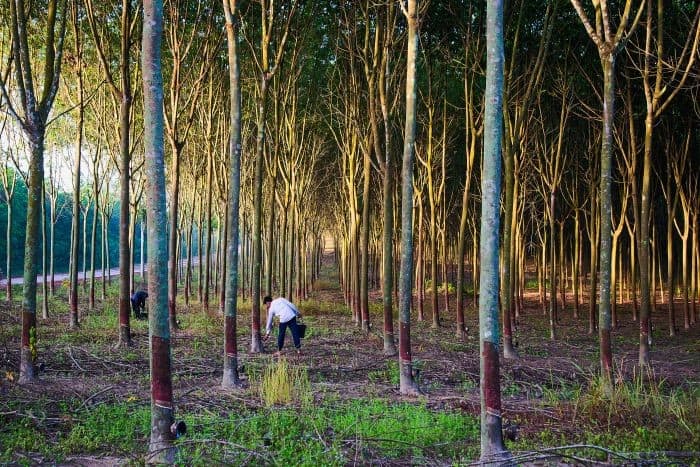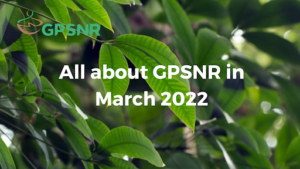Strategy and Objectives Working Group:
In recent developments within the Risk Subgroup, significant progress has been made. Consortiums Agridence and Koltiva have delivered their conclusive reports, which have been duly circulated among the members. The Risk Subgroup extended an invitation to ASI, requesting insights into the formulation of the Risk Assessment Framework. This move aims to ensure the adaptability of the framework to the many different risk tools that exist in the Natural Rubber Industry. Collaborative efforts are also underway, as the Risk Subgroup and ASI work together on an inaugural pilot trial, focusing on setting Indonesia’s national risk parameters.
Meanwhile, significant strides have been taken in the realm of the Assurance Model Taskforce. Resolutions have been shared within the Strategy and Objectives Working Group, inviting constructive feedback. The completion of the Due Diligence System falls under the purview of ZSL, marking a substantial accomplishment.
The Risk Subgroup is engaging in early-stage discussions with the Basel Institution, exploring a potential collaboration concerning corruption risks within the supply chain.
Further negotiations between the Risk Subgroup and ASI encompass a range of key initiatives, including the preconfiguration of National Risk Levels, the refinement of the Risk Tool’s questionnaire, and harmonising National Risk levels with other established risk assessment tools used within the GPSNR community. ASI is entrusted with designing the GPSNR Assurance Model; and a draft Framework has been shared.
Smallholders Representation and Capacity Building (SCB) Working Group:
In recent updates, several advancements have occurred. The Indonesia National Subgroup has reported quarterly progress to the SCB WG for the GAP Coaching and Disease Fighting projects.
Meanwhile, in Thailand, the National Subgroup has completed proposal evaluations, leading to the selection of Koltiva for the Thailand GAP Coaching project.
A notable achievement is the official endorsement from the SCB WG for the final recommendations report of the Smallholders Policy-Equivalent (SPE).
Concurrently, the Agroforestry-Income Diversification taskforce has successfully finalised contractual arrangements and is actively overseeing projects in Indonesia.
Preparations are underway in the Thailand Agroforestry subgroup for upcoming training discussions scheduled for October 2023. Similarly, the Thailand GAP subgroup is taking steps to initiate its project.
On the technological front, the Digital Knowledge Sharing Platform (KSP) task force is making progress in developing features, anticipating the forthcoming piloting phase.
The HCSA-HCVN Field Trials task force is focused on refining the final report for subsequent submission to the SCB WG.
Looking ahead, the Agroforestry-Income Diversification Taskforce is gearing up for a series of agroforestry workshops planned for 2023-2024.
Cross-group collaboration is evident as the Thailand Agroforestry subgroup plans a knowledge exchange session with the Agroforestry-Income Diversification taskforce and Indonesian smallholder, Pak Febrius SW, with a focus on Rubber Agroforestry.
Lastly, the SCB WG is proactively organising calls with smallholders from diverse countries as part of their preparations for the upcoming October 2023 General Assembly.
Policy Toolbox Working Group:
A resolution along with its corresponding Annex was drafted, aiming for Year 2 Disclosure Requirements. These were slated for submission to the 5th General Assembly (GA).
Consultant Petra Westerlaan presented a proposal to the WG that outlined revisions to the GPSNR Reporting Framework. This proposal resulted from a comprehensive comparison with other reporting frameworks, including CDP Forest, GRI, and ZSL-SPOTT. The proposed revisions emphasised quantification, which would enhance data aggregation and simplify the assessment of annual progress.
Subsequent to the GA, the WG will scrutinise Petra’s proposed revisions and arrive at a consensus on changes to the Reporting Matrix.. Sufficient lead time is essential for companies to prepare their Year 3 data.
Once agreement is reached on revisions to the Reporting Matrix, the WG will proceed to define the disclosure requirements for Year 3 reporting. This sequential approach ensures a methodical and informed evolution of the GPSNR reporting process.
Shared Responsibility Working Group:
During the face-to-face meeting, the Governance and guiding principles were introduced. Manufacturers are in the process of obtaining internal approval for the Governance Framework. They will subsequently furnish a final version for approval from the GPSNR Executive Committee (EC) and the General Assembly.
A draft resolution was shared with the Working Group (WG) and received approval for distribution to members for feedback.
Collaborating with the Capacity Building WG, the WG is developing a protocol to screen and assess proposals. This evaluation process will be based on the Equity definition and stakeholders as outlined by the EC.
One of the co-chair seats in the Shared Responsibility WG is available, and a call for volunteers has been initiated.





